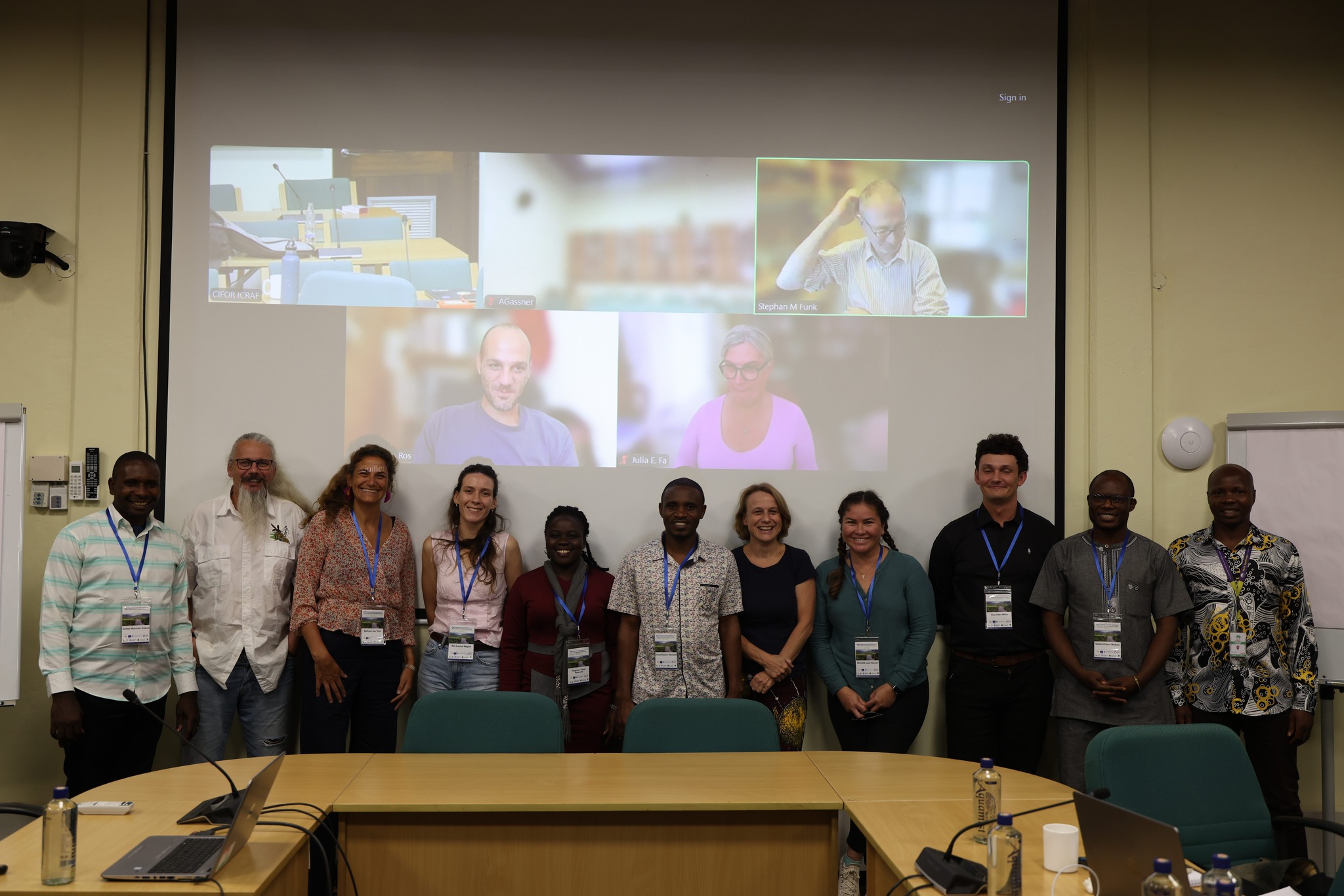Technical workshop on Biodiversity monitoring methodologies

SO WILD staff participated in the technical workshop on Biodiversity monitoring methodologies to be used in the new Sustainable Wildlife Management (SWM) Biodiversity component. The workshop was hosted by CIFOR-ICRAF in Nairobi, Kenya, from 27th to 29th of August 2024. The new SWM Biodiversity component will be launched in October 2024. 16 scientists from SWM Guyana, SWM Cameroon and Yangambi gathered both online and in person in order to determine the methodologies to use in assessing and monitoring the biodiversity in the Yangambi Biosphere Reserve (YBR, Democratic Republic of Congo (DRC), the Dja Fauna Reserve (Cameroon), and the Rupununi region (Guyana). It is important to highlight that Dja Fauna Reserve and Rupununi region are SWM sites.
The SWM Programme is a major international initiative that aims to improve wildlife conservation and food security. It is implemented through a consortium partnership, which includes the Food and Agriculture Organization of the United Nations (FAO), the Centre for International Forestry Research (CIFOR), Wildlife Conservation Society (WCS) and the French Agricultural Research Centre for International Development (CIRAD).
Firstly, the workshop focused on what has been done on wildlife in 3 selected sites through presentations and secondly, an interactive discussion on the methods and taxa to be studied were conducted.
For Yangambi Biosphere Reserve, medium and large mammal, birds and fish were chosen according to some criteria set up by the plenary (important to local community, emblematic, indicators of ecosystem functionality etc). Camera traps, eDNA, soundscapes will be used to study mammals, while soundscapes in combination with classic methods (such as bird counts and nets) will be used to monitor birds and the eDNA and fish stock assessment will be used to assess and monitor fish respectively.
The SO WILD team is still working on a proposed concept. Before project implementation, local partners (government, local community, civil society and private sector) will be consulted and their feedbacks used to finalize the proposal.
We are grateful to the CIFOR-ICRAF Kenya team for hosting this workshop and to all the participants from the SWM Programme teams of Guyana, Cameroon and DRC for your insightful inputs throughout. Thank you to the European Union (EU) for the financial support.

